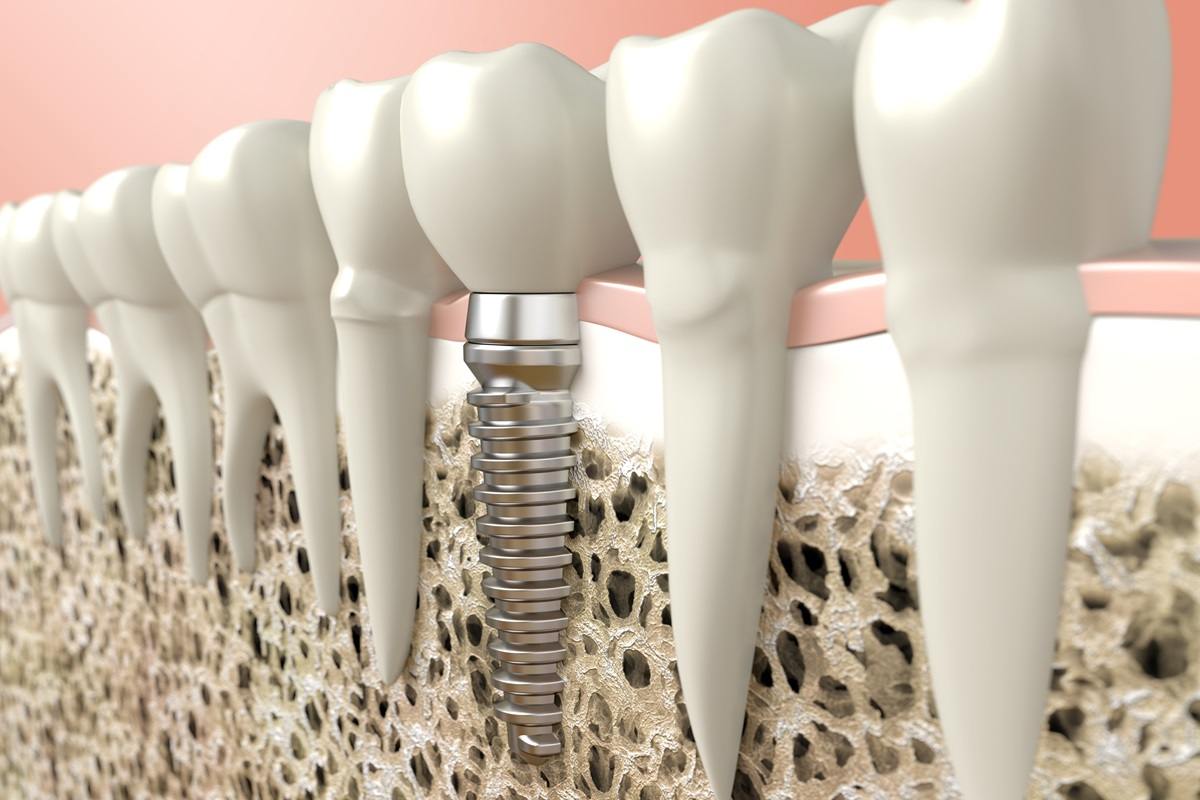A confident smile is a valuable asset, and dental implants have transformed the field of dentistry, allowing many people to reclaim their smiles and oral functionality. Dental implants in Danvers can be a game changer if you’ve lost a tooth due to injury, decay, or gum disease. Familiarizing yourself about dental implants, from their benefits and types, to the procedure, aftercare, and cost, will help your visit take place without a hitch.
What is an Implant?
Dental implants are artificial tooth roots made of biocompatible materials, such as titanium, that are surgically implanted beneath the gum line in the jawbone. They provide a solid foundation for replacement teeth, which can be fixed or detachable depending on the patient’s requirements. Dental implants, unlike dentures, appear and function like natural teeth while offering several benefits, such as better speech, comfort, and oral health.
Types of Dental Implants
- Endosteal Implants
These are the most common type of dental implants and are inserted directly into the jawbone. Endosteal implants are primarily utilized for single-tooth replacement or as a foundation for bridges and dentures.
- Subperiosteal Implants
Subperiosteal implants are implants that are inserted below the gums but above the jawbone. They are appropriate for patients with low bone height since they do not necessitate significant bone integration. They are, however, less prevalent than endosteal implants.
- All-on-4 or All-on-6 Implants
These are specialist implant treatments that use only four or six precisely placed implants to support a whole arch of teeth, giving them a more cost-effective and efficient solution for full-arch restorations.
The Procedure
1. Consultation
The first stage is a comprehensive dental assessment and consultation, during which the dentist assesses your oral health, discusses your goals, and produces a specific treatment plan for you.
2. Implant Placement
The dentist carefully inserts the implant into the jawbone during this minor surgical procedure. Over the course of several months, the implant fuses with the bone in a process known as osseointegration, ensuring a stable foundation for the replacement tooth.
3. Abutment Placement
Following osseointegration, an abutment is attached to the implant, acting as a link between the implant and the artificial tooth.
4. Restoration
Finally, the restoration process is completed by attaching a custom-made crown, bridge, or denture to the abutment.
Eligibility for Dental Implants
Dental implants near you may not be a one-size-fits-all option. Eligibility for dental implants depends on factors like health, jawbone density, and lifestyle choices. Advancements in dental implant technology, such as bone grafting, now offer more options for those who may not have qualified before.
Benefits of Dental Implants
Improved Aesthetics
Dental implants are meticulously designed to look and feel like natural teeth. Their design is tailored to your existing teeth’s color, shape, and size, resulting in a smooth and completely natural appearance.
Restored Functionality
Dental implants work exactly like natural teeth, allowing you to eat, speak, and chew normally. There is no risk of slippage or discomfort, as there is with removable dentures.
Long-Lasting
If maintained and cared for appropriately, dental implants can last a lifetime. They are one of the most long-lasting tooth replacement options.
Preservation of Jawbone
Dental implants stimulate the jawbone more effectively than alternative tooth replacement treatments such as dentures or bridges. This stimulation is necessary for preventing bone loss and maintaining the structural integrity of your face.
No Impact on Adjacent Teeth
Dental implants, unlike dental bridges, do not require the modification of neighboring healthy teeth, preserving their integrity.
Improved Oral Health
Dental implants are simple to clean and maintain, which promotes good oral hygiene. There is no need for special adhesives or cleaning solutions, as with dentures.
Comfort and Convenience
Dental implants become a permanent part of your mouth, removing the inconvenience and discomfort associated with removable dentures.
Aftercare and Maintenance
Aftercare and upkeep are essential for the success of your dental implants. This includes proper oral hygiene habits, routine dental check-ups from a professional dentist in Danvers, and adhering to your dentist’s cleaning and maintenance instructions for your implants.
Cost Considerations
The cost of dental implants varies depending on criteria such as the number of implants needed, the complexity of the case, and your location. While dental insurance may cover a certain portion of the costs, discussing financing options with your dentist is essential for efficiently managing the expenditures.
Dental implants are a remarkable solution for people who are missing teeth, offering both aesthetic and functional advantages. Understanding the implant procedure, its benefits, and how to care for your implants is essential for making an informed oral health decision. If you’re considering acquiring dental implants, consult with an expert dentist near you who can create a specific treatment plan to help you attain a confident and healthy smile.
Visit Danvers Family Dental to Restore Your Smile!
Do you want to repair your smile with the confidence of dental implants? Our local dental practice is the place to go. Our skilled team is committed to restoring your attractive, natural-looking smile. We offer exceptional dental implant services to meet your expectations, using cutting-edge technology and a commitment to your oral health.
Don’t let missing teeth hold you back; visit Danvers Family Dental today and let us help you achieve the smile you’ve always wanted!

